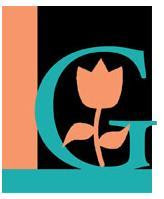 Rosemary is one of many different types of herbs can be grown in southeastern North Carolina. A great opportunity to learn more about herbs and to purchase many different varieties is coming up this weekend, March 27 and 28, at the Herb and Garden Fair at Poplar Grove Plantation, on Hwy 117 between Hampstead and Wilmington. Extension Master Gardener Volunteers will be on hand both days to answer questions and provide gardening advice.
Rosemary is one of many different types of herbs can be grown in southeastern North Carolina. A great opportunity to learn more about herbs and to purchase many different varieties is coming up this weekend, March 27 and 28, at the Herb and Garden Fair at Poplar Grove Plantation, on Hwy 117 between Hampstead and Wilmington. Extension Master Gardener Volunteers will be on hand both days to answer questions and provide gardening advice.Other flavorful herbs that thrive in our area include perennials like oregano, chives, and sage and annuals such as basil and parsley. If you have never tried to grow herbs or are looking to expand your herb garden, spring is a great time to plant.
Learn More! Click here to read the entire article on the Pender County Cooperative Extension: http://pender.ces.ncsu.edu/index.php?page=news&ci=LAWN+66 Website



